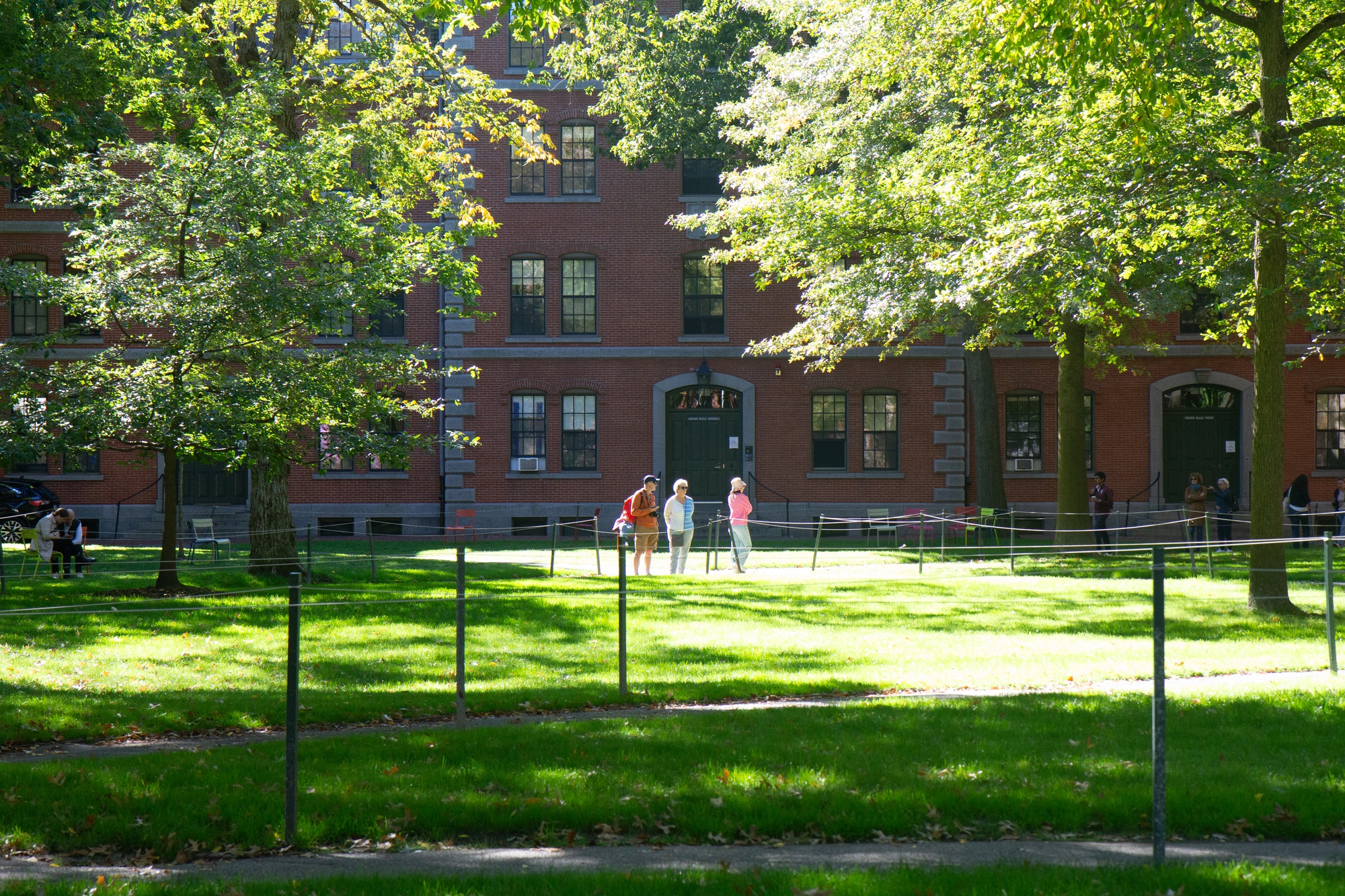
‘Basic Questions,’ Unanswered: Inside Harvard College’s Rapid Diversity Office Dismantling
By Samuel A. Church and Cam N. Srivastava, Crimson Staff WritersFew details were finalized when Harvard College Dean David J. Deming informed staff on July 23 of plans to shutter the College’s Women’s Center, Office for BGLTQ Student Life, and Harvard Foundation for Intercultural and Race Relations.
In a message to College staff, Deming cast the diversity offices’ closure as a way to integrate their work and staff into a new “Harvard Foundation,” part of a monthslong effort to revamp Harvard’s approach to student support systems.
But key questions — including the future job titles and responsibilities of employed workers — remained undecided when the message went out. Into late August, administrators were still ironing out those details, leaving students and center directors in the dark about the future of their work.
Former directors of the three diversity offices were officially informed of the plan to close their centers and integrate them into the new foundation just hours before Deming sent the email to all College staff, according to two Harvard employees familiar with the matter.
The abrupt nature of the rollout has not been lost on students. Deming was questioned in August by Peer Advising Fellows as to why the College was shifting away from identity-based programming. And last week, students denounced the College’s decision to close the centers at a Harvard Students for Freedom protest.
In his remarks to PAFs, Deming said the changes were motivated by external pressure and constraints from outside the University, according to seven attendees. And when asked by a student employee about the reason for the changes, one of the center directors said they believed they were made as a direct result of threats from President Donald Trump, according to the student, who was granted anonymity to discuss the private conversation.
But in public, Harvard officials have avoided mentioning the University’s political troubles in announcing the diversity office shakeups — a trend they continued from the spring when Harvard renamed its central Office of Equity, Diversity, Inclusion, and Belonging, citing changing internal missions.
During a different PAF meeting in August, Habiba Braimah, now senior director of the Harvard Foundation, and associate director Matias Ramos said the decision to close the centers was made after administrators received guidance from the Office of the General Counsel, Harvard’s legal team, according to one PAF in attendance.
Since the Supreme Court struck down the consideration of race in college admissions policies, universities’ diversity and affinity programs have been under more legal scrutiny. The Trump administration has argued that the affirmative action ruling makes any race-conscious college programming illegal.
Full-time staff at the centers were left wondering what titles they held after the new Harvard Foundation website appeared, but without job titles or descriptions for its employees. Several students who relied on the centers for employment or support said they spent the summer worrying whether the services would be there in the fall.
College spokesperson Jonathan Palumbo declined to comment for this article.
After the College removed the websites for the three offices, a group of 20 office interns and affinity group leaders co-signed a letter to the center directors, University President Alan M. Garber ’76, and Harvard Secretary Suzanne Glassburn inquiring about the future of the offices.
“We are writing out of urgent concern regarding the direction and future of the Office of BGLTQ Student Life, the Harvard Foundation for Intercultural and Race Relations, and the Women’s Center,” they wrote. “While this message is written respectfully and in good faith, it is driven by a collective sense of confusion, frustration, and concern. Right now, many of us feel unsupported, and even worse, invisible.”

Eli Johnson-Visio ’26, co-president of the Harvard Queer Students Association and the author of the letter, said the group’s signatories did not receive a response until more than a week after Deming’s July 23 announcement, when Braimah offered him an opportunity to schedule a meeting with Alta Mauro, Associate Dean of Students for Culture and Community.
“I asked very basic questions, like, ‘What’s changing?’ ‘What was the rationale behind the dissolution of the three offices?’ ‘What’s the reporting structure within your office?’ ‘If students have a problem within the community, do we go to you?’” Johnson-Visio said, adding that Mauro’s answers only added to his confusion.
The diversity offices have since lost designated spaces in freshman dorms, and the more than 30 former center interns have been asked to apply to new roles in the Harvard Foundation. Deming only announced the creation of the Office of Culture and Community to the full undergraduate body on Sept. 2, the first day of classes — without mentioning the closing of the former offices.
“As you have likely heard, the Dean of Students Office has undertaken incredible work figuring out how we can support our entire community during these fraught times,” he wrote.
Olivia F. Data ’26, a former communications intern at the Women’s Center who has been in regular communication with center directors, said she did not know whether all of the interns would regain their jobs.
“There is not any answer for how many positions will be open, or what the positions will do and be responsible for,” she said.
“Short answer, I don’t have a job,” Data added. “Long answer, I don’t know what that future will look like.”
—Staff writer Samuel A. Church can be reached at samuel.church@thecrimson.com. Follow him on X @samuelachurch.
—Staff writer Cam N. Srivastava can be reached at cam.srivastava@thecrimson.com. Follow him on X @camsrivastava.
